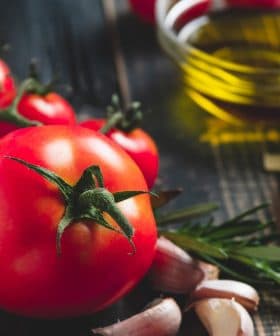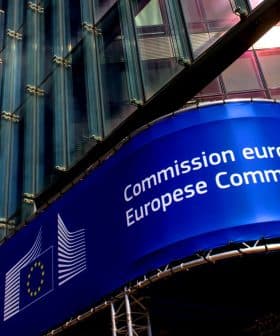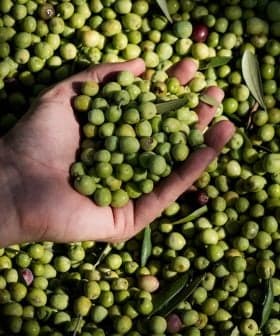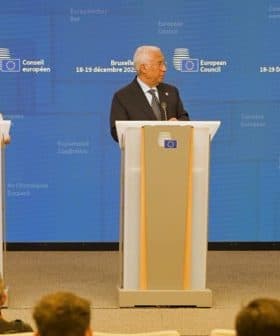New Research Rekindles Debate on Nutri-Score’s Effectiveness
The debate over Nutri-Score has intensified as new research from the OECD supports its efficacy, while a separate analysis claims the opposite. Nutri-Score, a front-of-pack labeling system, uses colors and letters to rate the healthiness of food items, with proponents arguing it could prevent millions of cases of non-communicable diseases in the EU, while critics suggest more independent research is needed.
The heated debate about Nutri-Score reached new heights in recent weeks.
As new research from the Organization for Economic Cooperation and Development (OECD) validated the efficacy of Nutri-Score, another analysis suggested the opposite about the French-born front-of-pack labeling system (FOPL).
Nutri-Score is a traffic-light-style FOPL that uses a combination of five coordinated colors and letters to rate the healthiness of a packaged food item based on its fat, sugar, salt and calorie content per 100-gram or milliliter serving. The ‘Green A’ indicates the healthiest option, while ‘Red E’ denotes the least healthy.
See Also:Nutri-Score Founder Says Olive Oil Will Never Attain the Highest RatingIn recent years, Nutri-Score has been adopted by several European countries and has long been considered the most likely candidate to become the only mandatory FOPL across the European Union, which is still far from reaching a final decision.
According to the OECD research published in the scientific journal Obesity Review, Nutri-Score appears to be the best option among the currently used FOPLs on the market for combating the obesity epidemic and promoting healthier eating habits.
The OECD research backed by the European Commission affirms that Nutri-Score might prevent nearly two million cases of non-communicable diseases in the E.U. from 2023 to 2050.
According to the researchers, adopting Nutri-Score might lower annual healthcare spending compared to other FOPLs and improve productivity for workers of all ages.
The research is based on a review of the existing literature and a simulation that determines the possible impact of the expansion of the analyzed FOPLs across the entire European Union.
Still, according to a recent paper published by PharmaNutrition, the scientific literature about Nutri-Score is biased and more extensive independent research on the FOPL should be conducted.
The two Dutch authors published their study as a pre-proof article, meaning it was peer-reviewed but could be further revised before official publication.
The researchers wrote that most studies supporting Nutri-Score’s efficacy were “carried out by developers of Nutri-Score, whereas the majority (61 percent) of studies conducted independently from the developers showed unfavorable results.”
The researchers analyzed 104 scientific papers that investigated the efficacy of Nutri-Score. Each was classified as favorable, unfavorable or neutral toward the FOPL.

The paper notes that the studies favorable to Nutri-Score were authored by 52 researchers “employed or connected” with Nutri-Score’s developers, with an additional 19 neither employed nor connected.
Looking at the unfavorable studies, 30 researchers had no connection with Nutri-Score’s developers. Four others did.
“Even though the theoretical effect of Nutri-Score is validated on a multi-nutrient algorithm (FSA-NPS), there is no real-life evidence of any beneficial effects of Nutri-Score on this algorithm across a complete supermarket range,” the researchers wrote.
The FSA-NPS is the nutrient profiling system introduced by the British Food Standards Agency. The development of Nutri-Score was also based on a version of this system, modified for food labeling purposes, known as FSAm-NPS.
The article’s authors, Stephan Peters and Hans Verhagen, stated that the 2021 report from the International Agency for Research on Cancer (IARC) of the World Health Organization, favorable to Nutri-Score adoption, also included contributions from Nutri-Score developers.
Among the authors cited as contributors by the IARC investigating the correlation between Nutri-Score and cancer or mortality was Serge Hercberg.
The emeritus professor of nutrition at Sorbonne University is also a nutritional epidemiology research team member and founder of Nutri-Score.

Serge Hercberg
According to Hercberg, the new article published by PharmaNutrition lacks scientific foundations.
He told Olive Oil Times that the article had “conceptual and methodological problems, incorrect classification of scientific papers, biased presentation and discussion and false accusations and statements.”
Hercberg also warned that “authors attack public researchers and studies published in peer-reviewed journals that are disturbing the interests of food companies, suggesting that academic researchers involved in Nutri-Score’s validation might have conflicts of interest and their conclusions should be disqualified on the pretext that their scientific work led to Nutri-Score’s development a few years ago.”
See Also:Hundreds of Scientists Support Adoption of Nutri-Score Labeling SystemHercberg accused the article’s authors of “working for food companies that have been involved in lobbying battles against Nutri-Score for many years.”
He cited the Dutch Dairy Association and the Food Safety & Nutrition Consultancy, two entities mentioned in the paper among the credits of the two authors.
According to Hercberg, the Dutch Dairy Association includes several companies opposed to Nutri-Score, while the consultancy’s clients include the European Association of Sugar Manufacturers.
“It appears that the real objective of the authors is to downplay the link between economic conflicts of interest or study funding from food companies,” Hercberg wrote. “This is a significant oversight, as such conflicts of interest are well known to influence study outcomes.”
Peters told Olive Oil Times how “in the debate, the Dutch Dairy Association is framed by the scientists involved in Nutri-Score as an opponent of Nutri-Score. Actually, we are not.”
“We are completely in line with the opinion of the Dutch food-scientific community,” he added. “We think that Nutri-Score should be in line with food-based dietary guidelines before being introduced and that its effect on consumers should be proven independently.”
Peters said the reasons for their research come from the fact that both himself and Verhagen are “involved in the independent scientific committee of the former Dutch front-of-pack logo Het Vinkje in the Netherlands.”
“This FOPL has been removed from the Dutch market because it was too confusing for consumers,” Peters said. “Now Nutri-Score is being introduced, and we pledge for a sufficiently good scientific substantiation of the logo before introduction.”
“The science behind Nutri-Score is still very biased,” Peters and Verhagen wrote. “Therefore, we advise that independent scientists do future research and that the assessment of its health effects and efficacy are carried out by an independent scientific authority like the European Food Safety Authority.”









